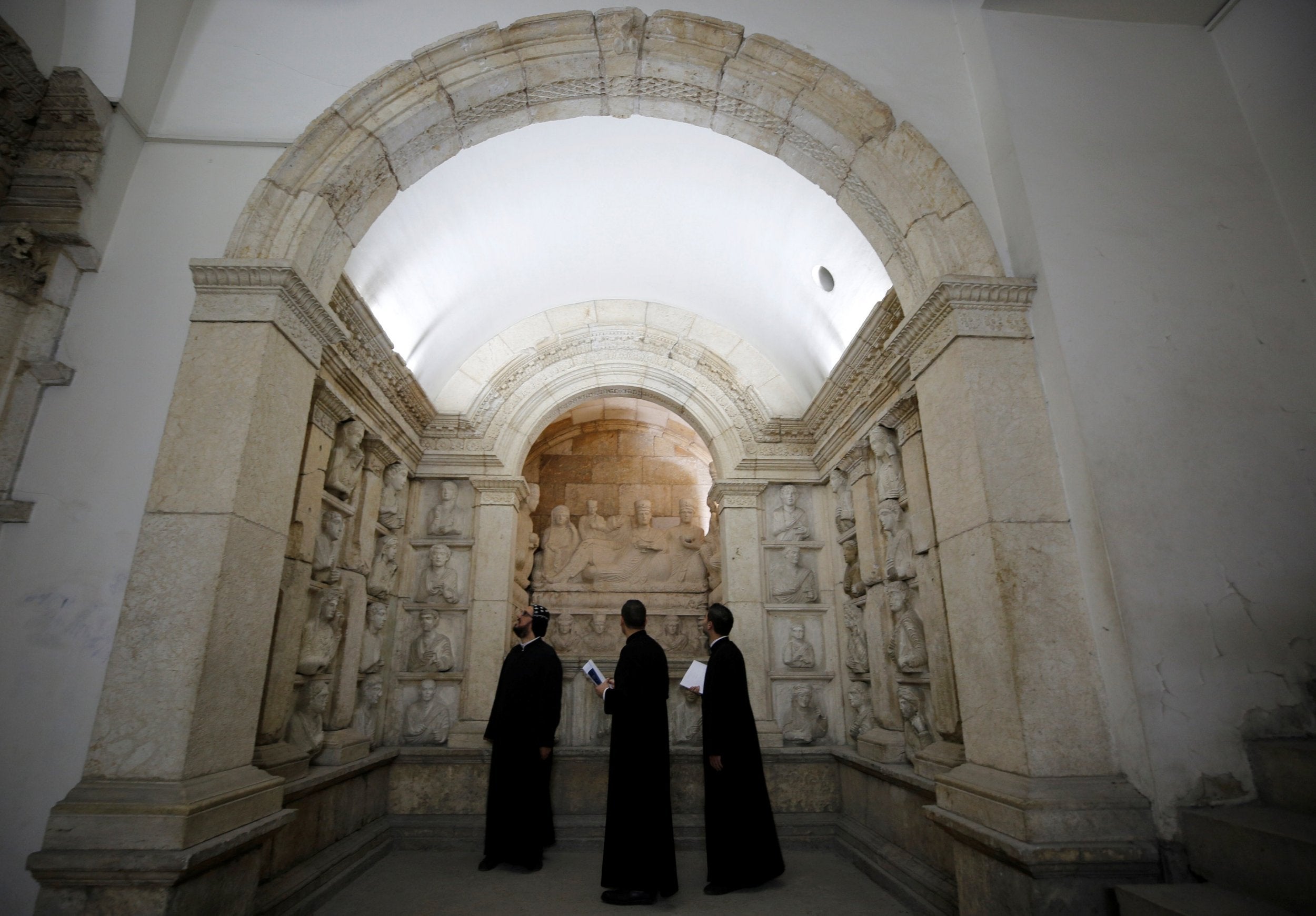Syria reopens national museum in recently-shelled Damascus after six years
'Opening of the museum is a genuine message that Syria is still here and her heritage will not be affected by terrorism'

Syria's National Museum in the heart of Damascus has reopened, more than six years after the prominent institution was shut down and emptied as the country's civil war encroached on the capital.
The reopening of the museum was hailed as a return to normal life by Syrian officials, eager to cash in on the Syrian armed forces' military victories against armed groups.
These groups had only recently shelled Damascus and threatened the seat of the government in the capital, coming only miles from the presidential palace.
Over successive military advances, and with the backing of allies Russia and Iran, Syrian troops moved in on rebel holdouts on the outskirts of Damascus expelling the armed groups to the north and restoring calm.
“The opening of the museum is a genuine message that Syria is still here and her heritage will not be affected by terrorism,” Syrian Minister of Culture Mohamed al-Ahmad told reporters and visitors. “Today, Damascus has recovered.”
Among the antiquities on display are murals from the 2nd century Dura-Europos in Syria's east, textiles from central Palmyra and statues of the Greek goddess of victory from the south.
Syria's conflict, raging since early 2011, has been detrimental for the country's rich heritage.
Douma chemical attack: Syria war in pictures
Show all 13Authorities shut down museums and safely stored away over 300,000 artefacts, but some sites were still destroyed by the Islamic State group, damaged by the fighting or looted.
Head of the General Directorate for Antiquities and Museums, Mahmoud Hammoud, said four of the five sections of the museum will be opened to showcase hundreds of archaeological findings that date back to the prehistoric, historical, classical and Islamic eras.
He said some artefacts restored or seized by Syrian authorities will also be on display.
More than 9,000 artefacts were restored and reclaimed since the war began, he said, noting that the museum needs renovation and funds. He said hundreds of thousands of important artefacts and sculptures were smuggled abroad during the crisis.
Visitors will be able to watch as specialists restore hundreds of artefacts reclaimed from Palmyra, which Islamic State militants overtook for months destroying some of the world's most famous monuments.
Bartosz Markowski, a Polish specialist in conservation of stone sculpture and architectural detail, said he had been working in Palmyra before the war broke out.
“I am saving heritage, mostly in Palmyra, where I have been working before the crisis,” he told The Associated Press. “I came right after liberation and helped with urgent conservation and protection of destroyed objects in Palmyra... There is still a lot of damage in Palmyra.”
For Mr Markowski, reopening the Damascus museum was “symbolic”.
“When life is coming back, we are opening the museums,” he said.
Claus Peter Hasse, the director of the Islamic Art Museum in Berlin, said he felt safe travelling between Damascus and Aleppo, Syria's commercial heart and ancient city, also damaged by the war.
“Of course, it's a tragic situation to see so many tragedies around, but at the moment, we don't see difficulties,” he said.
The former Directorate-General for Antiquities and Museums, Maamoun Abdul-Karim, who had overseen the campaign to hide artefacts in safe places, said the country needs years, major capabilities, and millions of dollars to reopen all museums nationwide.
He said hundreds of artefacts will return to the classical wing inside the museum, including those relating to the Greek and Roman period, while other wings will reopen soon.
“In fact, this was a very big victory for the country,” he said. “When all museums reopen nationwide, then we can say that the crisis in Syria ended.”
AP
Subscribe to Independent Premium to bookmark this article
Want to bookmark your favourite articles and stories to read or reference later? Start your Independent Premium subscription today.

Join our commenting forum
Join thought-provoking conversations, follow other Independent readers and see their replies